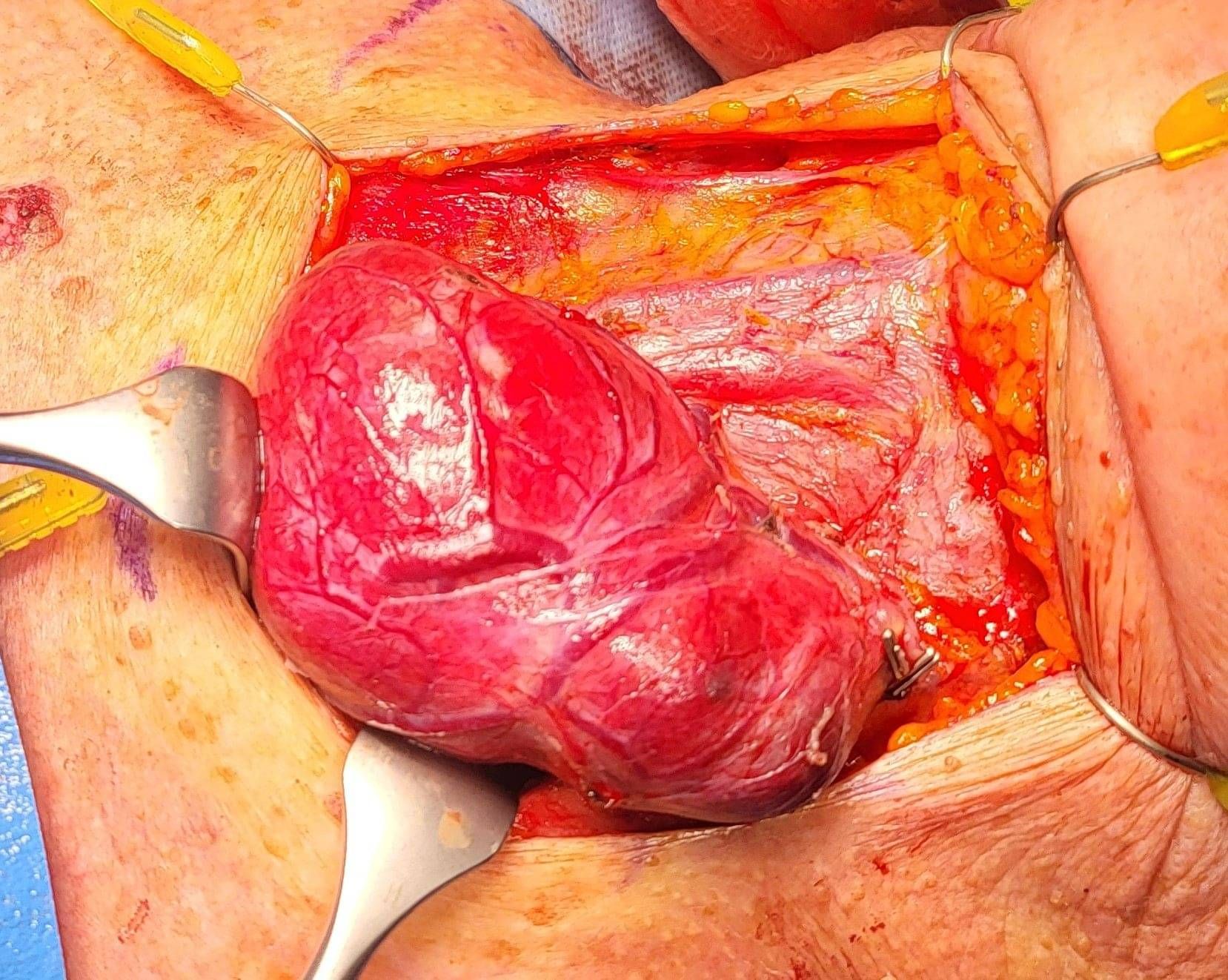Thyroid
Thyroid Nodules
A thyroid nodule specifically refers to a discrete abnormal growth or lump within the thyroid gland. This appears distinct from the surrounding thyroid tissue, typically seen on ultrasound scans. Nodules can present as solid, cystic (fluid-filled), or a combination of both. It can also vary in size and may be solitary (one nodule) or multiple (multiple nodules). These nodules can be classified based on their appearance and characteristics on imaging studies (ultrasound, CT scan, etc.) and may require further evaluation to determine if they are benign or potentially cancerous. Thyroid nodules are more commonly found in women and tend to increase in frequency with age.
A single nodule represents a specific type of goitre but in many cases, thyroid nodules are not solitary but rather multiple, which is part of an innocent, non-cancerous condition known as multinodular goitre. This condition involves the presence of several nodules within the thyroid gland, which can cause a generalised enlargement of the thyroid and potentially lead to compression of nearby structures in the neck.

Causes
Benign nodules are frequently observed in areas where there is iodine deficiency, among individuals with autoimmune thyroiditis (such as Hashimoto’s thyroiditis), and in those who have undergone radiation exposure to the thyroid gland. Additionally, the occurrence of thyroid nodules within families suggests a genetic component in their development. Studies have identified genetic mutations in up to 25% of benign nodules that are distinct from those found in papillary thyroid cancers.
The mutations associated with the development of thyroid cancers include:
BRAF, RET and NTRK-1 mutations in papillary thyroid carcinoma (PTC)
Pax8-PPARgamma and RAS group mutations in follicular thyroid carcinoma (FTC)
TP53 mutations in anaplastic thyroid carcinoma (ATC)
RET mutations in medullary thyroid carcinoma (MTC)
Notably, RET mutations in PTC are frequently observed in children who have been exposed to radiation.
Understanding these genetic mutations helps in the diagnosis and management of thyroid nodules, particularly in distinguishing between benign and potentially malignant nodules. Genetic testing and other diagnostic procedures are utilised to assess nodules and guide with appropriate treatment decisions.
Symptoms
Thyroid nodules can present with a variety of symptoms depending on their size, location and whether they are causing hormonal changes. Small thyroid nodules often do not cause any symptoms and may be discovered incidentally during a routine physical exam or imaging studies.
Neck Symptoms - A nodule may be visible or palpable and can be felt as a lump in the front of the neck. Larger nodules can exert pressure on the surrounding structures, such as the trachea or oesophagus, leading to sensation of pressure on the neck or throat, difficulty swallowing (dysphagia), feeling of a lump or obstruction in the throat or even a gagging sensation.
Voice Changes - Hoarseness or changes in voice quality can occur if a nodule compresses or affects the recurrent laryngeal nerve, which controls the vocal cords.
Respiratory Symptoms - Compression of the trachea or nearby structures can lead to shortness of breath, especially when lying flat (orthopnea), coughing or wheezing.
Pain - Pain in the neck or throat may be experienced particularly if there is bleeding into the nodule (hemorrhage). This pain can be sudden and may resolve as the bleeding subsides.
Hyperthyroid Symptoms - Some nodules can be functionally active and produce thyroid hormones independently of the body's needs, leading to symptoms of hyperthyroidism (thyrotoxicosis) like tremors, rapid or irregular heartbeat (palpitations), heat intolerance, excessive sweating, weight loss despite increased appetite and even restlessness, anxiety or nervousness.
Hypothyroid Symptoms - In some cases, thyroid nodules may be associated with underlying thyroid disorders, such as autoimmune thyroiditis (Hashimoto's thyroiditis), which can cause symptoms of hypothyroidism (underactive thyroid) like fatigue, weight gain, cold intolerance, dry skin and constipation.
Approximately 6% of thyroid nodules are usually a very low-grade form of cancer, which is highly treatable and often completely curable. Rarely, some nodules may turn out to be a more aggressive form of thyroid cancer, but these cases are uncommon.
Diagnosis & Management
Individuals with thyroid nodules, whether single or multiple, are recommended to undergo evaluation by a healthcare provider. This typically includes imaging studies such as an ultrasound and sometimes fine needle aspiration (FNA) biopsy to determine the nature of the nodules and to guide appropriate management.
Diagnostic evaluation typically includes physical exam, blood tests and thyroid function tests (to determine over/under – active thyroid) along with ultrasound imaging, fine needle aspiration cytology and possibly genetic testing to determine the nature of the nodules, and guide in appropriate treatment. Radiological tests like a CT scan may also be conducted to check the position of a lump.
Molecular/genetic testing involving genome analysis using GEC classifier and molecular panels (Rule in/Rule out tests) can be applied to determine the absolute indication to guide informed decision towards opting for thyroid surgery and also the extent of thyroid surgery for equivocal nodules. We offer Thyramir/ThyGeNEXT molecular testing to ascertain suitability and aid guidance for choosing surgery for patients who are contemplating but not yet decided for surgery.
Management of thyroid nodules depends on their size, symptoms, and whether there are any suspicious features suggesting malignancy. Observation, medical therapy, or even surgical intervention may be required. Regular follow-up is important to monitor changes in nodules and adjust treatment as necessary. With indications like compression of nearby structures, cosmetic concerns or hyperthyroidism, a Thyroid RFA may be required.